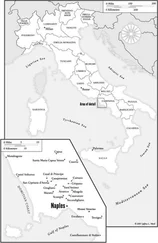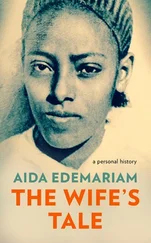From time to time on a Sunday evening I would go with my parents to 6.30 evensong in the school chapel. Sitting alone across the gangway, rather stooped, would be an old man in a tweed coat. One Sunday after Suez, my father introduced me to him. ‘This is the Prime Minister, Jonathan,’ he said.
I shook the man’s hand and looked up into rather sad eyes and drooping eyebrows. ‘Do you know what a Prime Minister is, young man?’ Harold Macmillan asked me.
‘Something to do with the Queen?’ I suggested. ‘Are you married to her?’
‘Good Lord, no!’ chortled Macmillan. ‘One day you might like to be a politician. That’s what I am.’ With that he got into the waiting Humber and purred away to his huge country home, Birch Grove, just beyond Ardingly village. Little was I to know that Macmillan’s wife Dorothy was probably at that very moment in bed with the scoundrel Tory MP Bob Boothby, with whom she maintained a torrid affair throughout her husband’s premiership. Perhaps this strikingly sad man gained solace from the chapel services while she found hers between the sheets.
The only good politician in my father’s house was a Tory politician. Labour never got a look-in. My father’s Christian faith did not extend to embracing the birth of the welfare state. His faith was the Tory party at prayer: war, Conservatism and Anglicanism were the trinity upon which my father’s philosophy was founded.
My mother never dissented from my father’s view; if anything she was even more conservative. But my relationship with her was of an altogether different texture. I enjoyed her femininity, her Blue Grass scent, her pearls, tweed skirts and Jacqmar scarves. It was not until I was eight that her greatest burden, the loss of her hair, was shared with me. Consequently she was reserved, and never let me clamber about her or run my fingers through what I still thought of as her hair. It was not until after my father’s death twenty years later that she discussed her loss of hair openly.
The piano was our thread of contact throughout my childhood. My mother was a wonderfully bold performer, in stark contrast to the retiring role she played within the family. Her long, slender, beautifully manicured fingers ranged powerfully across the keys as she played her beloved Brahms. She did not play often, and never without sheet music. I longed for her to extemporise and light upon some of the tunes I knew. She never did. Instead, from perhaps the age of four I began to pick up themes from her playing, and hummed or sang along with her. I was concerned that my brothers, who spent their time buried in my father’s workshop soldering solenoids, might tease me for this, but gradually, by the age of about seven, I began to sing with more gusto. It was in this activity alone that my mother revealed her most demonstrative maternal delight. Her eternity ring would clink about on the ivories as I, who could only vaguely decipher the clusters of notes on the page, waited for the nod that would signal me to turn it.
‘I say, Joan.’ It was my father calling out from behind The Times one day at breakfast.
‘Yes, darling?’
‘There’s a notice here about a voice trial at Winchester Cathedral to select new choristers. Shall we put the boy in for it?’
So began an intensive few weeks of arpeggios, harmonics and music theory. On the appointed day in April 1956 I turned up at Dumb Alley, a musty rehearsal room in the Winchester Cathedral Close where all the choir practices were held. Almost immediately I found myself standing next to the seated figure of the man who would be my choirmaster for the next five years, the aptly named Alwyn Surplice. After a rendition of the carol ‘Oh Little Town of Bethlehem’, I was in. I became a choral scholar at the Pilgrim’s School in the cathedral close.
My father was visibly pleased with my achievement. ‘You can have anything you want, under a pound,’ he announced. This was an extravagant gesture for him, in response to my saving him some severe school fees for the next five years. It was well after five o’clock as we headed for the shops. ‘You don’t need to spend it now,’ he said. But I wanted it right now, quick, before the shops closed at 5.30. Instant gratification, when we found the toyshop, came in the shape of a pale-blue Dinky Toy car transporter. It cost sixteen shillings and sixpence – no mean sum in those days.
Within three months I had arrived at Pilgrim’s School as a very full-time boarder, my holidays truncated and term times extended by saints’ days and high days, for which the sixteen members of the choir had to be present even when the other boys had gone home for vacations. The parting from Ardingly, treehouses, warfare with my brothers, music with my mother, was unutterably painful. At eight years old, I felt abandoned and inadequate. ‘He can’t do up his shoelaces, you know,’ my father had called over his departing shoulder to my new headmaster. Yet within weeks I found myself becoming part of the medieval weft and weave of the cathedral. Snaking across the close two or three times a day, we sixteen choristers were with Trollope, and Trollope was with us. We had stepped into history and joined with the characters of Barchester: dry old Canon Lloyd, with long strands of oily black hair draped across his naked pate; fat, jolly Canon Money, who didn’t seem to have any because his cassock was full of holes; and deliciously eccentric Dr Lamplugh, Bishop of Southampton, who still had a Christmas tree in the hallway of his house come July. These were the decaying generals of the Church militant, presided over by learned Dean Selwyn and the remote Bishop of Winchester, Bishop Williams. We choristers were in thrall to Alwyn Surplice, our organist and choirmaster, who smacked the backs of our hands with a ruler whenever he wanted better of us.
The fingers of Alwyn Surplice’s right hand had become closely clustered as a result of years of Morse-tapping and top-secret code-breaking at Bletchley Park during the war. This heroic condition was said to excuse the occasional duff notes in his organ playing. In reality, he played the organ like a demon. Practically all the staff at the school had been to the war. Principal amongst them was the dashing Rodney Blake, who was to run off to New Zealand with the piano teacher, deserting a wife with large ankles and two children, to the scandalised gossip of the cathedral close. Rodney taught me a love of the English language in general, and of the adjective in particular. He was a man full of mystery who had served on ships in the Atlantic, and his stories of derring-do had me ready for action any time.
I soon discovered that the entire cathedral was a kind of mausoleum to unbroken centuries of the direst conflict. Right in between the choir stalls where we sang lay the second proper King of England, William Rufus, with an arrow in his back. High on the side screens that led to the rood screen above the high altar were funny-coloured boxes in which the powdery remains of even earlier Kings lay, among them Canute and Ethelred the Unready. There was hardly a man interred in the building who had died peacefully in his bed.
On either side, all the way down the nave, the transepts were festooned with officers who had died from Afghanistan to Zanzibar. The two World Wars seemed to have taken half the population of Hampshire with them. Everywhere there were memorials incorporating guns, cannon, stone-cast flags, swords and worse. Every day we were amongst this stone-entrenched certainty of war. To crown it all, the great west window stood testament to the results of a cannonball fired by Oliver Cromwell from the hill overlooking the cathedral. Every piece of glass in it had been smashed and rescued. The result was a jumble that left a cat’s head on a slice of human armour, a sword under the upside-down leg of a horse. Even the language of faith included words like ‘defender’, ‘sword’, ‘shield’, ‘armies’ and ‘victory’.
Читать дальше












